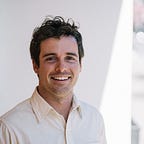48 hours in Medellin
A master class in innovation culture and collective transformation
You call tell a lot about the cultural priority of a city from what is advertises along the highway leaving the airport. On route to Medellin, it's all startups and reggaeton albums. The 48 hours I spent meeting with entrepreneurs in Medellin this week resulted in a few personal insights around the importance of a well oiled startup ecosystem, “player-coaches,” and the power of collective memory to inspire a generation.
From what I could observe, Medellin is the model entrepreneurial ecosystem not just for Latin America, but for the world. Armed with an excellent technical university (EAFIT), a history of government support for innovation (Ruta N), global unicorn success cases who remain active in mentoring the next generation (Rappi Mafia), risk seeking capital in the form of angels and active early stage VC funds (Angels like Omar Calvo, funds like Jaguar/Marathon), and of course talent (which is abundant). Yet, for the same reason that cities designed from the ground up never result in vibrant street life or an informal economy, the same can be said for startup ecosystems — they can't be over-engineered. What brings life to Medellin, and makes the whole thing operate at warp speed is the “paisa energy.” It breeds and attracts a certain type of person. Paisa culture is the master conductor, taking every piece of the rag tag band and turning it into an elite orchestra.
Medellin, like Monterrey, MX is also an example of a smaller city cultivating its own business identity and culture entirely distinct from the capital. Being from those cities, and building from those cities, means a world of difference and any investor or leader looking to hire teams in the region should invest in knowing the difference. The histories and cultural heroes are very different. Further, in terms of their broader commercial orientation, I heard from a few founders that once companies reach a certain escape velocity in Medellin, they look south to Brazil, not Mexico, and especially not the United States. One founder even went as far to say, “If I don't have operations in Sao Paulo in 18 months I will be disappointed.”
While the model of successful founder turned VC is a well trodden one globally, I find it inspiring that Colombia produces a slightly different brand of it where the founders are still actively operating their core business, and see the venture share of their attention as a mechanism for encouraging and accelerating the next generation of companies. When speaking with one of the founders of LaHaus, I realized their parallel efforts with Jaguar Ventures are good examples of this, along with Rappi leaders launching Opera Ventures. The sports metaphor of a “player-coach” feels apt here. I believe these examples reflect a healthy, growth oriented ecosystem that is self-sustaining.
My afternoon with Eduardo Ospina, CEO of Unergy not only gave me a glimpse into the after hours startup culture in Medellin as I joined his weekly soccer game where they often invite guest founders, funders, and potential customers. With confidence, I can say the Unergy engineers would beat my high school team, handedly.
I also had the chance to better understand Eduardo´s vision of redirecting the Colombian energy mix towards distributed solar and green hydrogen. The paisa instinct to “just get started” was obvious in their offices, the kitchen stove is powered by green hydrogen, brought in from panels on the roof powering a small electrolyzer resulting in a reserve hydrogen tank to complement the office energy load. All part of his broader vision to create a better energy export opportunity for Colombia and develop more self reliance and circularity for enterprise energy buyers in the country.
But above all, what astonished me most about the visit is the recognition that just 20 years ago, Medellin was considered the most dangerous city in the world, the legacy of Pablo Escobar and a half century of political turmoil and infighting infecting its sense of possibility. I won't pretend like I know how the city transformed itself into one of the most attractive startup hubs on the continent so quickly, but I do believe that creating a physical space for memory plays a role.
My second morning in Medellin, I visited the Casa de la Memoria, a free museum that tells the story of Medellin in the last half century, through its periods of violence, political struggles, insurrection, and finally a form of reconciliation. Reading the testimonials from activists, civil service groups, and everyday people exposed helped me to understand that through such difficult times comes a unique determination, sense of purpose, and capacity to build the future you desire. It's no surprise then that the sons and daughters of that generation are bringing a recognizable brand of grit, drive, and creativity to the global entrepreneurial landscape.
It also inspired the question about how a culture can know when a transition has been complete, or when is the right time to recognize that a community or industry is ready to put its difficult past in the rear view mirror. I hope in my generation there is a museum to the memory of our carbon powered economy and all those, like Eduardo, who fought to bring forward a new normal.
Thank you to my friends at Aptuno, Unergy, LaHaus, Rondoo, Sellrs, and Oye for giving me a small glimpse into this incredible city.
De una!
